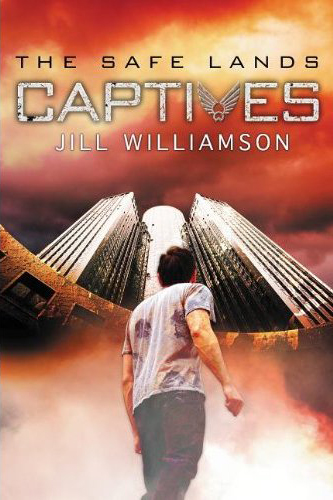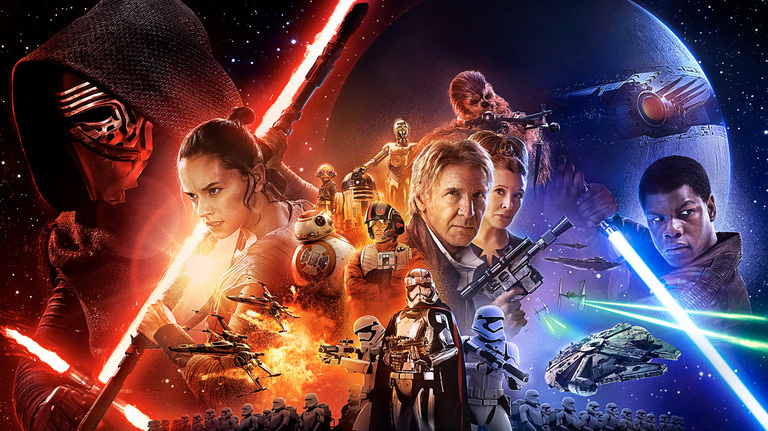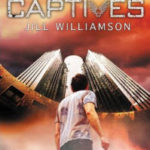Star Wars And Christian Fiction
Christian fiction is a popular topic here at Spec Faith (see this post, for example, from a year ago, or more recently the four part series starting with this one), and it should be. But why is that?
I had the opportunity to finally see the latest Star Wars movie last week, and I have to admit, my feelings about it are mixed. As a movie, I saw many flaws: the editing was bad, the settings weren’t adequately established, the protagonist was . . . well, undefined. Was this Rey’s story, or Po’s or Finn’s, or Ben’s? To be fair, even though much of the movie felt like a remake of the original three, there were still some plot twists that had me guessing.
Apart from the actual movie production, however, I had a much stronger negative reaction to what the movie was saying: there is a Jedi religion; the force does not belong to the Jedi but to all people because it is within; and even if the opposition wins out for now, the next generation, the children, will take up the fight and strive against the dark side.
It’s a very eastern mystic message intertwined with humanism. And it was on display in a more open way than in any of the previous movies, at least as far as I cam recall. I do have to confess that my memory is not the best when it comes to specifics about old movies, but in this latest iteration of Star Wars, I didn’t think anyone would have to struggle to see the religious elements.
 Christian fiction stands in contrast to this open discussion about religion. Yes, in contrast. Despite what some say, who apparently haven’t read much Christian fiction of late, the prevailing philosophy among Christian writers and editors is that Christian fiction should not preach! Which is interpreted to mean, Christian fiction should not present Christ in an overt way.
Christian fiction stands in contrast to this open discussion about religion. Yes, in contrast. Despite what some say, who apparently haven’t read much Christian fiction of late, the prevailing philosophy among Christian writers and editors is that Christian fiction should not preach! Which is interpreted to mean, Christian fiction should not present Christ in an overt way.
Consequently, any number of writers will say it doesn’t matter what a Christian writes, or that “being edgy” is better than “being clean.” The idea seems to be that I, being a Christian, will quite naturally write from a Christian worldview.
But is that true?
I don’t think so. I know that the articles I wrote for a local Los Angeles area newspaper ten years ago, had a particular purpose that didn’t allow me to weave in my Christian worldview. I think fiction is no different. If the aims of a story do not lend themselves to weaving the gospel into the plot or characters or theme, then there is no “Christian worldview.”
An author has to purposefully do the worldview weaving if the story is actually to contain a Christian purpose. That being said, I believe not every story written by a Christian needs to contain the gospel message, overtly or in more subtle ways.
As an example I look to the Bible. Some chapters in Scripture, and even some books, seem to do something other than present the gospel. Or do they?
I think of the book of Ruth, for example, that paints a picture of a kinsman redeemer. I think of Esther which shows God’s rescue of His people, and I think, aren’t those stories about Christ without naming the name of Christ? Clearly Jesus was stamped on the Old Testament long before He came in the flesh, so much so that He could take His followers aside after His resurrection and explain the Scriptures and how they pointed to Him.
 But in his first letter to the church in Corinth, Paul draws a distinction between “planting” and “watering” and “causing growth.” (See 1 Cor. 3:6-7). In other words, some messengers of the gospel are not reaping the harvest. They are busying plowing and planting.
But in his first letter to the church in Corinth, Paul draws a distinction between “planting” and “watering” and “causing growth.” (See 1 Cor. 3:6-7). In other words, some messengers of the gospel are not reaping the harvest. They are busying plowing and planting.
So what does plowing and planting look like for the writer? I don’t know that there is a definitive answer, but it will look different from an explicit story designed to move a reader to repentance.
That being said, I don’t think all stories should be about plowing and planting. We need some stories that water, some that show the increase, and some that center on the harvest. Above all, I think writers should stop pointing fingers at what this Christian or that has written, what this story or that accomplishes.
For one thing, I think a lot of the supposition about Christian fiction is simply wrong. Good writing doesn’t lend itself to preaching. It involves weaving the truth skillfully into the story proper without bringing the action to a halt to deliver a message that readers can’t miss. The better a writer becomes, the more skilled he or she will be in this aspect of storytelling.
And make no mistake. The longer Christian fiction is in existence, the more skilled authors become. Once there seemed to be a gulf between the best Christian fiction and the best general market fiction. Largely Christian fiction earned acceptance by Christians because of its reputation as clean and “safe.” Maybe also because the message agreed with what the reader already believed.
Is that still the case today? Yes, and no.
 I think of speculative stories like Mary Weber’s Storm Siren Trilogy or Jill Williamson’s Safe Lands Trilogy or Patrick Carr’s Dark Water Saga which are not anything like the stories by Donita Paul or Karen Hancock or Bryan Davis, some of the earliest Christian speculative fiction writers.
I think of speculative stories like Mary Weber’s Storm Siren Trilogy or Jill Williamson’s Safe Lands Trilogy or Patrick Carr’s Dark Water Saga which are not anything like the stories by Donita Paul or Karen Hancock or Bryan Davis, some of the earliest Christian speculative fiction writers.
Are these later books better? In some ways, perhaps, but not because they “don’t preach.” They don’t, but the “better” part is more in the development of the style of writing that is popular today, not in what the books have to say. Do they deal with the gritty side of life? Yes. Do they deal with grief and death and loss and anger and sin? Yes. But those other authors dealt with those same things.
In short, I think Christian speculative fiction has always been a step ahead of other genres of Christian fiction, and I think the current titles, which are being published by publishing houses with Christian imprints, have continued to grow and to accomplish planting and watering. Now is not the time to back off and be less “Christian” in our fiction while the general market is pulling the curtain down and being more idolatrous or more godless. Rather, I think it’s time for Christians to be more skilled.










































I had a much stronger negative reaction to what the movie was saying: there is a Jedi religion; the force does not belong to the Jedi but to all people because it is within; and even if the opposition wins out for now, the next generation, the children, will take up the fight and strive against the dark side.
Hmm. I’m not sure I understand the problems you’re identifying here. For one, the term “religion” has been applied to the use of the Force since early in the very first Star Wars film, when an admiral snipes contemptuously at Darth Vader that he has a “sad devotion to that ancient religion” just before Vader force-chokes the man and utters one of the most famous lines in the series: “I find your lack of faith disturbing.” The similarity between the teachings of the Jedi that the Force indwells and connects all living things and the tenets Buddhism have also been obvious since the beginning of the series. I don’t see anything in The Last Jedi that goes beyond what the earlier movies have already said, let alone being worse than any of them. In fact I’m greatly relieved that the new trilogy hasn’t repeated or reinforced what I consider to be the most blasphemous and disturbing bit of the prequels — that Anakin Skywalker aka Darth Vader was a virgin birth conceived by the Force.
Would TLJ have been a less questionable movie in your opinion if, instead of Luke telling Rey that the Force is part of all living things and does not belong exclusively to the Jedi, he had told her that the Force is a special power of the Jedi (and presumably their Dark Side equivalent the Sith) alone, and that lesser beings have no part in it? How would that be better or more true to Christianity, morally or theologically?
And the third part you seem to suggest you found disturbing is the idea that when the older generation fails, the next generation will take up the fight against the Dark Side. What part of that caused your negative reaction? Isn’t that a very common message of hope in all kinds of movies that involve war and conflict? Is there something unbiblical or insidious about the idea that children can be morally and spiritually wiser than grown-ups sometimes, or that children have the potential to learn from and avoid their parents’ mistakes?
I’m not saying The Last Jedi is a Christian movie (as I said, its spiritual underpinnings lean more toward Buddhism, but that’s a basic fact of the Star Wars universe and always has been), but neither did it strike me as any more anti-Christian than previous SW films or most other popular SF movie franchises. And personally, I do see a lot of moral truth in TLJ and even parallels to the books of Judges, Kings and Chronicles in the way the movie shows how those who start off being lauded as heroes or thinking of themselves as such (like Luke Skywalker on the one hand, or Poe on the other), often turn out to be painfully fallible and capable of making foolish, destructive decisions out of pride and/or fear.
The overriding message of TLJ is that failure is something we all experience and all need to learn from (whether we choose to do so or not), and I would far rather see that in a movie than a story about shining paragons of virtue who triumph over evil through their own goodness.* The former is moral truth that echoes the teaching of Scripture even if it doesn’t include the full truth of the gospel; the latter is humanistic propaganda that might seem uplifting and inspiring on the surface but ultimately offers no hope at all.
—
* Not that I’m saying this is what you wanted or expected from the movie, but I’m not quite sure what a better alternative would actually be.
Thanks for your great response, RJ. I guess in the early days of the Star Wars franchise, there was some question about the worldview the movies were espousing. More than several of us wondered if there were Christian underpinnings. I mean, could Luke be a type of Christ? So the thinking went. But no. I guess I never went back and dissected those movies to see where the Buddhist/eastern mysticism was being advanced. Maybe I’ve also grown more sensitive to the false preaching done in general market fiction
At any rate, I did think the gloves came off in this movie, that there was no subtlety any longer.
I saw the “force within” as just another version of the humanist cry that all we need is . . . us! Just look within and you’ll find what you need.
The children at the end bothered me because I see, though it certainly isn’t implicit in the movie anywhere, Christians as “the dark side.” What else would they believe to be opposed to their worldview? Targeting children for indoctrination has become a strategy (see the curriculum in public schools), and here it is openly advocated. Yes, I saw echoes of other films, notably Camelot which ended almost the same way. But I don’t find it comforting that “bring in the children” is an open strategy of those who are opposed to God.
Becky
I am… kind of baffled to the point of near-speechlessness that you would think the movie was portraying Christians as the Dark Side, especially given that all the Star Wars movies strongly emphasize the power-craving, un-loving, fear-driven, hateful nature of the Dark Side and calmness, peace and compassion as being of the Light. I don’t believe for a second that the filmmakers are actively and consciously promoting Christianity, but neither do I believe they’ve structured the movies, and particularly the new trilogy, as an attack on the moral values Christians hold dear and a threat that they’re coming for our children.
Indeed if anything, the strong contrast between good behaviour and evil behaviour in the new films, the insistence that there actually IS a good side that needs to be preserved and defended through love and friendship and courage against a bad side that craves power and domination and violence, strikes me as a lot closer to Christian truth than the pervasive insistence of the Prequels that the Jedi and the Light side of the Force had become stagnant and corrupt and forbidding of all genuine human feeling and attachments, an order of cold celibates who exercised justice without mercy. Even though the Prequels gave lip service to the idea that Anakin was joining the wrong side and that Palpatine was devious and corrupt, it really didn’t give us much on the side of good to cheer for and killed off its most compassionate and likeable characters, Qui-Gon and Padme, while leaving Obi-Wan Kenobi a broken shell of failure and regrets (and rightly so, considering he chopped off all of Anakin’s arms and legs and left him to burn alive — hardly the act of a compassionate Jedi!).
By contrast, with the new movies we have characters who truly care about both justice and mercy (Rey), who see the evil of fighting for the First Order and refuse to be part of it (Finn), and who in making wrong moral choices and falling into the service of an evil master find themselves torn apart by the guilt of their sin (Kylo/Ben). I’m particularly fascinated by Ben’s story as I believe the arc of the three movies is leading up to his eventual redemption — not by sweeping his sins under the carpet, but by having him recognize the horror and emptiness of what he has become, and repenting. Without a Saviour in the Star Wars universe there can’t be a true gospel message, of course. But I think this trilogy does say a lot about what sin does to us, how it blinds us to love and light and leads us to hurt ourselves and the people around us, and that no matter how far down we have sunk or how lost we believe ourselves to be, there is always hope if we are willing to acknowledge our sin and repent.
So I can’t see the new trilogy of SW movies as hostile to the Christian message, because even if the Force itself is a pantheistic rather than monotheistic concept, they still contain quite a lot of truth when it comes to matters of good and evil. The Jedi might be confused about the actual nature of the Light vs. Dark Side, but even so the actual morality of the films is anything but grey. Just because some of the good characters mess up and fail in the course of the film doesn’t mean that goodness itself has been undermined. If anything it’s being emphatically reaffirmed by those characters having to recognize and learn from their mistakes so they can become wiser and better.
Becky, thanks for pointing out that not all Christian fiction need be planting. Watering is needed too. Speculative Christian Fiction may reach those who wouldn’t touch a religious book, and help strengthen those who are already Christians. If we write a story that glorifies The Father, then maybe he will use our stories where they are most needed.
i agree, Timothy. I think we’ve been afraid, as writers, for too long, thinking that we can’t or shouldn’t put something about our faith into our stories. I think it’s time we step out boldly, whether our stories accomplish soil prep, planting, watering, harvesting, and intentionally look to speak to our culture. Donald Maass, in one of his writing books says that an author should have something important to say. Here we are as Christians with the most important something to say, and we’re stuck back at, “But we shouldn’t preach.”
We shouldn’t, not because we have nothing to say or because we’re self-censoring but because we’ve learned how to write with subtlety and finesse so that our theme becomes a natural outgrown of the character development, not something tacked on by the author as a special message to the reader. One comes from the characters, the other comes from the author who is essentially intruding into the story to say his piece.
Becky